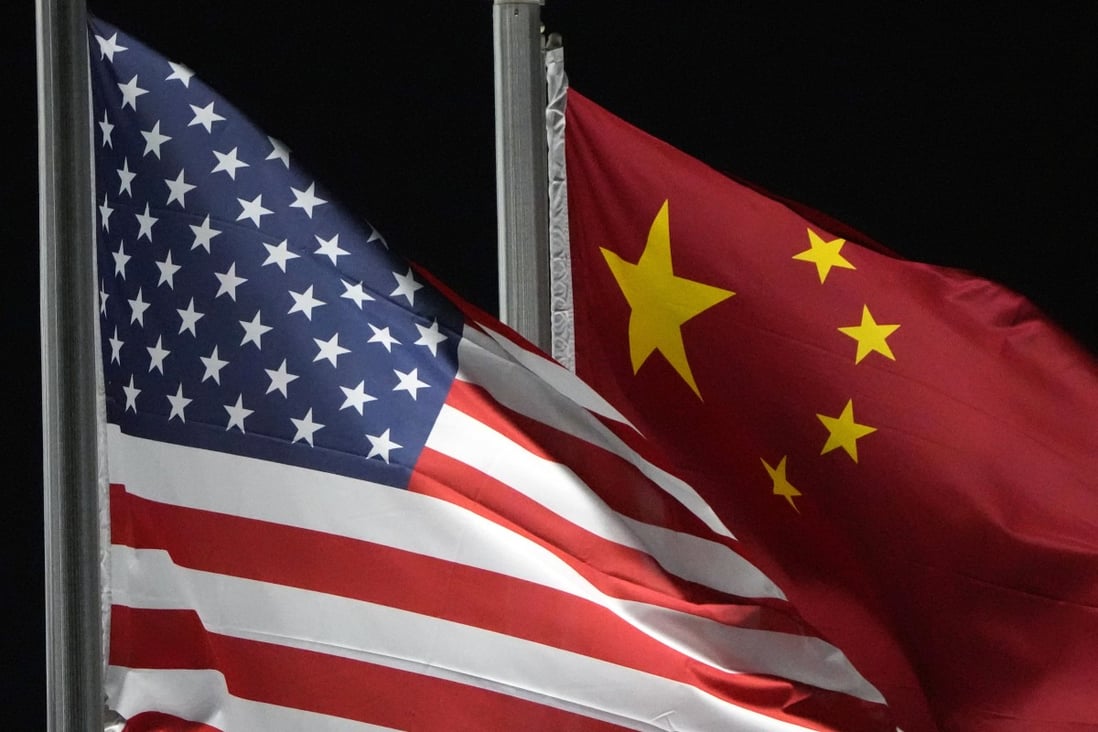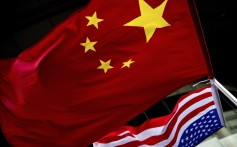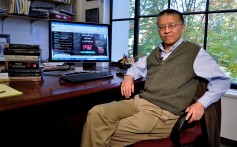Re <<Joe is very powerful>> and useful to protect national securities
scmp.com
US-based scientists of Chinese origin still feel ‘chilling effects’ of Trump’s China Initiative
Study published by renowned international science journal questions whether formal rollback of Trump-era China Initiative has changed anythingEngineering, computer and life sciences researchers felt the most fear and sense of unease, poll of over 1,300 academics at US universities finds
Sylvie Zhuang in Beijing
Published: 6:00am, 6 Jul, 2023

The findings, published in Proceedings of the National Academy of Sciences, come as the US-China rivalry spills over from the geopolitical arena to science and technology. Photo: AP
Over a third of Chinese-origin scientists in the US do not feel welcome in the country, and close to three-quarters do not feel safe as academic researchers, a survey published in a renowned international science journal has revealed.
The online poll, carried out after three years of the Trump-era China Initiative, also highlighted widespread fear among scientists of Chinese descent living the US.
Launched by the US Justice Department in late 2018 to probe scientists’ and academics’ potential links with the Chinese state, the initiative sparked concerns of racial bias and creating a culture of fear, and also triggered an exodus of Chinese-origin scholars.
It was dropped in February last year, with US national security officials declaring a more “threat-driven” approach.
“There are questions, however, regarding the extent to which the formal dropping of the ‘China Initiative’ name has been accompanied by substantive changes in the [US] government’s practices that address the chilling effects experienced by scientists of Chinese descent,” the report published in renowned international journal Proceedings of the National Academy of Sciences (PNAS) last week said.
At least 150 scientists had been investigated so far, with criminal charges laid against two dozen of them under the initiative, and “many more investigated in secret”, it said.
The study was carried out by five Chinese-origin researchers in the United States – a Harvard biostatistics scientist, a nuclear engineer at the Massachusetts Institute of Technlogy (MIT), and three “contemporary China” experts from Princeton.
More than 1,300 “tenured or tenure-track” academics at US universities were surveyed for the poll, carried out between December 2021 and March last year.
Chinese-American scientists fear US racial profiling
The findings come as the US-China rivalry spills over from the geopolitical arena to science and technology, with both seeking to win over the brightest scientific minds and Washington leading its allies in efforts to curb Beijing’s access to advanced technology, including semiconductors and artificial intelligence.
Researchers in the fields of engineering, and computer and life sciences, all of key concern in the escalating US-China tech war, experienced the most fear and sense of unease amid intensifying hostility between the rival powers, the report said.
There had also been a steady increase in scientists in these fields choosing to return to China, with the trend more notable since 2018, the study found.
Around 70 per cent of the respondents said they were fearful of “US government investigations into Chinese-origin researchers” and some 65 per cent were worried about joint research with China.
A study published by the science journal Nature in May last year said dual affiliations and US-China collaborations had fallen sharply by 2021 due to fears over drawing US government suspicions.
US ‘China Initiative’ stymied scientific innovation, study says
30 Oct 2021

About 65 per cent of respondents in the PNAS report attributed the fear to anti-Chinese sentiments sweeping the US with the arrival of the coronavirus pandemic, and more than 80 per cent reported having experienced insults in an non-professional setting.
Two-fifths also expressed unease over frequent attacks by US government officials on the “Chinese government or Chinese policies” and a similar number worried that their co-researchers, family members or friends might be targeted by the Chinese government in retaliation for something they did or said.
However, despite the overall fearful sentiment, an overwhelming 89 per cent of respondents “indicated their desire to contribute to the US leadership in science and technology”, the report said.
Some high-profile cases under the initiative saw US-based academics’ careers and reputations ruined overnight by their suspected Chinese links.
In 2021, Chinese-born professor Gang Chen, former head of mechanical engineering at MIT and a member of the US National Academy of Engineering, was accused of lying about China ties in funding papers. He was arrested, his lab was closed and his research group was disbanded. But all charges were dropped a year later, with the Justice Department admitting it could not prove its case.
China-born scientist targeted by US ‘discovers world’s best semiconductor’
16 Aug 2022

Non-Chinese academics were also caught up in the campaign. In April, retired Harvard professor Charles Lieber was placed under house arrest for six months and fined hundreds of thousands of dollars after being convicted in 2021 of trying to deny his ties to China and participation in Beijing’s Thousand Talents Programme, a project to recruit scientists and strengthen research.
The five scientists behind the PNAS report said they carried out the poll on behalf of the Asian American Scholar Forum, a non-profit organisation set up in response to Gang’s case “to promote academic belonging, openness, freedom, and equality for all”.
US suspicion of Chinese scientists actually predates the launch of the China Initiative. Sherry Chen, a National Weather Service hydrologist, was accused of spying for China a decade ago. Last November, she received US$550,000, and an additional US$1.25 million over 10 years, as settlement for the wrongful prosecution.
A number of Chinese scientists have given up their US citizenship since the launch of the China Initiative.
The latest to do so was biophysical chemist Xie Xiaoliang, who returned to China last month. The former Harvard professor is best known for helping to invent the single-cell DNA amplification method in 2012.
Zhu Songchun, an accomplished computer scientist, gave up a professorship at the University of California, Los Angeles to become dean of the Institute for AI at Peking University in 2020. |




